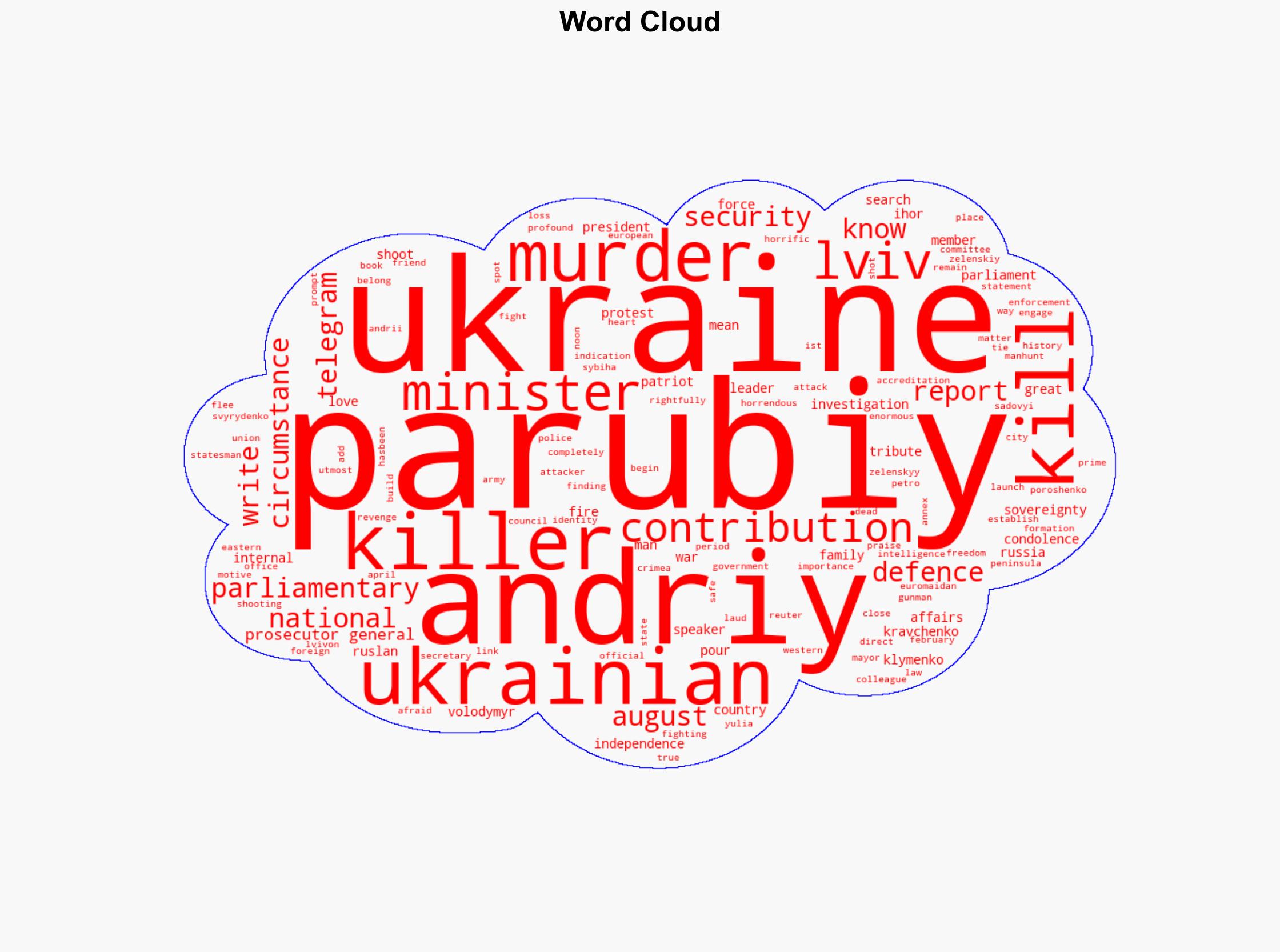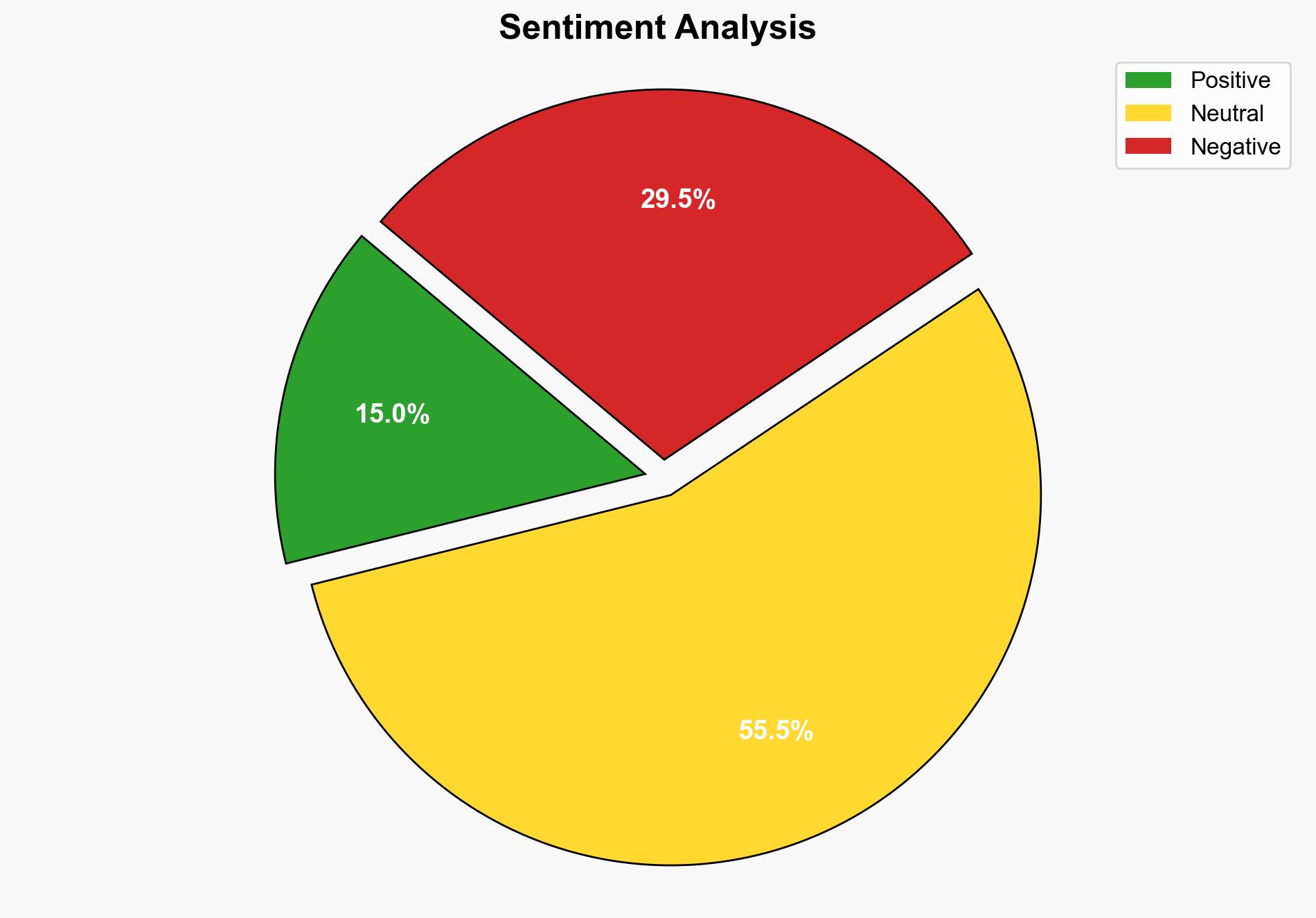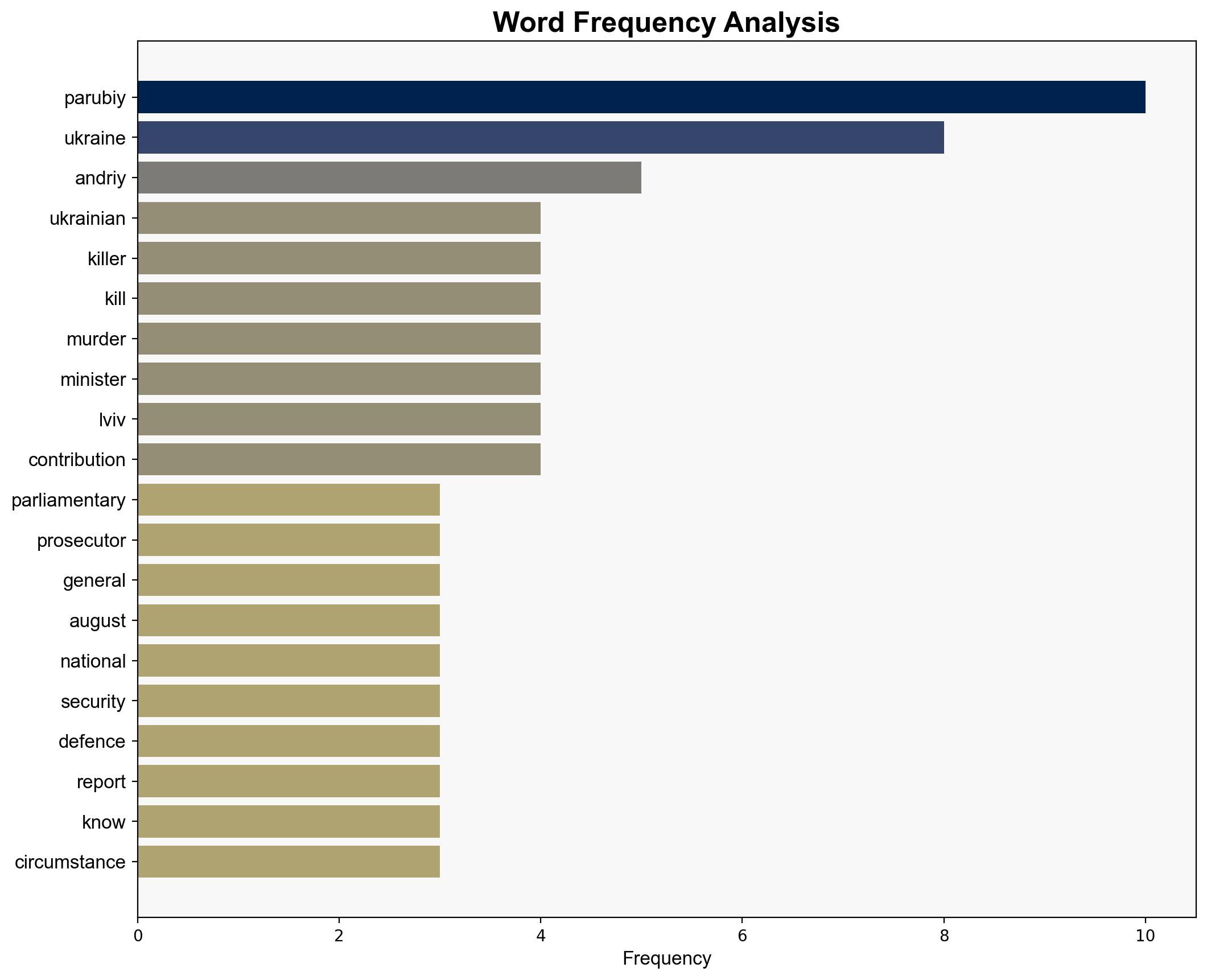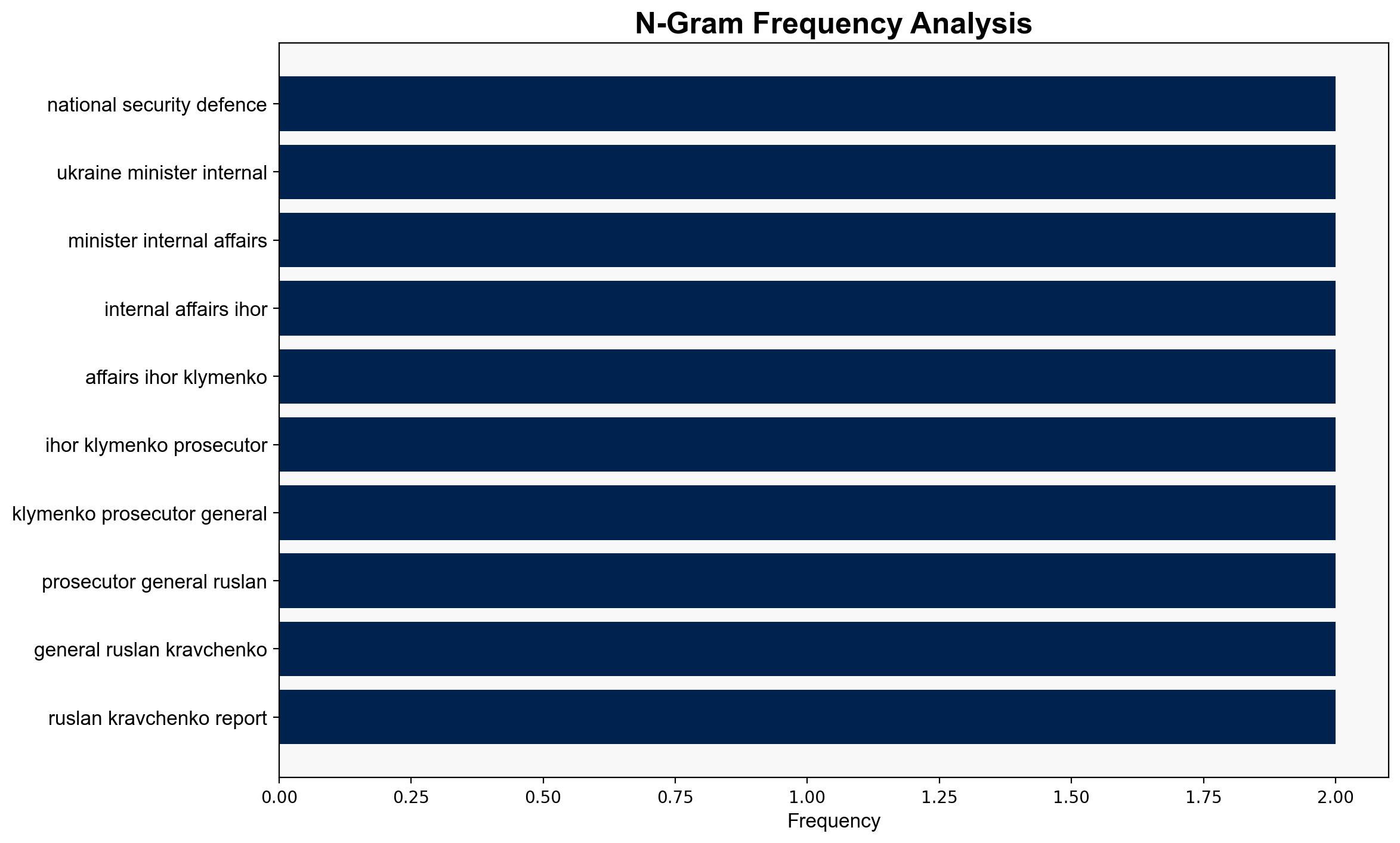Ukrainian former parliamentary speaker Parubiy shot dead – RTE
Published on: 2025-08-30
Intelligence Report: Ukrainian former parliamentary speaker Parubiy shot dead – RTE
1. BLUF (Bottom Line Up Front)
The assassination of Andriy Parubiy, a prominent Ukrainian political figure, raises significant concerns about internal security and potential external influence. The most supported hypothesis suggests internal political motivations, though external interference cannot be ruled out. Confidence in this assessment is moderate due to limited direct evidence. Immediate strategic action should focus on a thorough investigation to determine the motive and prevent further destabilization.
2. Competing Hypotheses
1. **Internal Political Motivations**: The assassination was orchestrated by domestic political adversaries seeking to destabilize or gain power within Ukraine. Parubiy’s role in national security and his influence in the Euromaidan protests may have made him a target for internal factions.
2. **External Influence**: The murder was facilitated or influenced by external actors, potentially linked to Russia, aiming to create chaos and weaken Ukraine’s political stability. Parubiy’s involvement in strengthening Ukraine’s ties with the EU and his leadership during the Crimea annexation period might have made him a target for foreign adversaries.
Structured Analytic Techniques (SATs) such as ACH 2.0 were applied, weighing evidence such as Parubiy’s political history, current geopolitical tensions, and the lack of immediate claims of responsibility. The internal political motivation hypothesis is slightly better supported due to the absence of direct evidence linking external actors.
3. Key Assumptions and Red Flags
– **Assumptions**: It is assumed that the murder was politically motivated and not a random act of violence. The lack of immediate evidence pointing to external actors is assumed to indicate internal motivations.
– **Red Flags**: The absence of detailed information about the gunman’s identity and motive is a significant gap. Potential bias may arise from focusing too heavily on internal politics without considering covert external operations.
– **Inconsistent Data**: Conflicting reports about the circumstances of the murder and the lack of immediate claims of responsibility are notable.
4. Implications and Strategic Risks
The assassination could lead to increased political instability within Ukraine, potentially affecting its governance and international relations. If external influence is confirmed, it could escalate tensions with Russia and impact regional security. There is also a risk of copycat attacks or further political violence, which could undermine public confidence in the government’s ability to maintain security.
5. Recommendations and Outlook
- Conduct a comprehensive investigation to identify the perpetrator and motive, involving international partners if necessary to ensure transparency and credibility.
- Enhance security measures for political figures and key infrastructure to prevent further incidents.
- Scenario Projections:
- Best Case: The investigation swiftly identifies the perpetrator, leading to increased security and political stability.
- Worst Case: Failure to identify the motive or perpetrator leads to further political violence and destabilization.
- Most Likely: The investigation reveals internal political motivations, resulting in heightened security measures and political tensions.
6. Key Individuals and Entities
– Andriy Parubiy
– Volodymyr Zelenskiy
– Ihor Klymenko
– Ruslan Kravchenko
– Andriy Sadovyi
– Petro Poroshenko
– Andrii Sybiha
– Yulia Svyrydenko
7. Thematic Tags
national security threats, political assassination, regional instability, Ukraine-Russia relations





